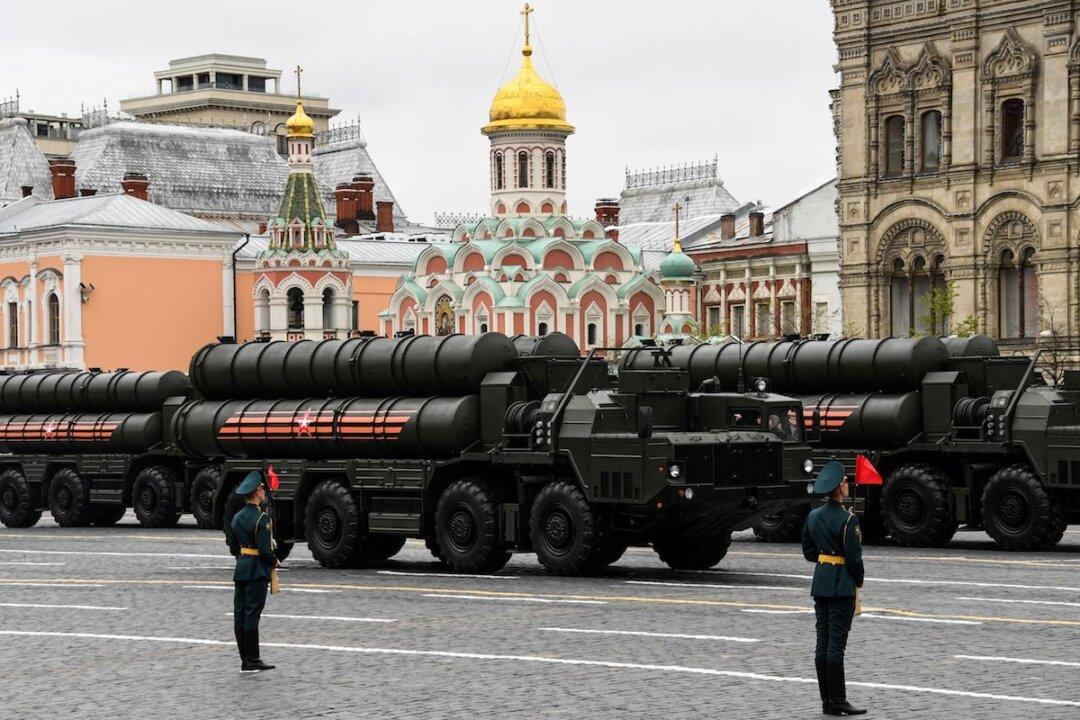ANKARA, Turkey—The first shipment of a Russian missile defense system has arrived in Turkey, the Turkish Defense Ministry said July 12, moving the country closer to possible U.S. sanctions and a new standoff with Washington.
A Defense Ministry statement said “the first group of equipment” of the S-400 air defense systems has reached the Murted Air Base near the capital, Ankara. Defense Minister Hulusi Akar said three planes carrying the equipment landed at the airfield on Friday, adding that the delivery would continue in the coming days.





